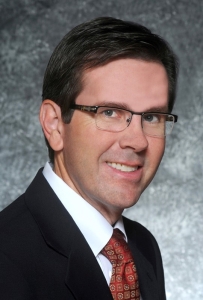By Jeffrey S. Ballinger and Jeffry F. Ferre
Best Best & Krieger LLP
Community leaders need to be attentive to the new laws that will take effect in 2015 that deal with issues specifically relating to cities, special districts and other public agencies. These new laws cover everything from massage businesses to broadening infrastructure financing. Below is breakdown of what public agencies need to know as they begin 2015, with links to more extensive information.
Effective Jan. 1:
AB 2067 & SB 142: Governor Signs New Laws Amending California’s Urban Water Management Planning Act
Under new amendments to California’s Urban Water Management Planning Act, urban water suppliers are now required to provide narrative descriptions of their water demand management measures and account for system water losses when preparing urban water management plans, among other changes. The amended Act, created by Gov. Jerry Brown’s signature on Assembly Bill 2067 and Senate Bill 1420, also establishes July 1, 2016 as the deadline for urban water suppliers to prepare and submit their 2015 UWMPs to the Department of Water Resources.
SB 628, SB 614, AB 229, AB 2292: Legislation Broadening Infrastructure Financing Districts
SB 628 allows local agencies to create enhanced infrastructure financing districts to finance specified infrastructure projects and facilities, and reduces the statutory threshold for voter approval of an EIFD’s issuance of tax increment bonds from two-thirds to 55 percent. EIFDs can be used to finance every type of public infrastructure, as well as other types of capital projects. Eligible projects include transportation, transit, water treatment, flood control and stormwater quality management, industrial facilities for private use, affordable housing, childcare facilities, libraries, parks, public facilities, energy, solid waste disposal and environmental impact mitigation.
SB 614 allows a local agency, until Jan. 1, 2025, to use tax increment financing in a newly formed or reorganized infrastructure financing district to fund improvements or upgrades to structures, roads, sewer or water facilities, or other infrastructure that serves a disadvantaged unincorporated community. A community qualifies as a “disadvantaged unincorporated community” if the annual median household income is less than 80 percent of the statewide annual median household income.
AB 229 authorizes a city to form an IFD to finance projects on a former military base and dedicate any portion of its funds from the Redevelopment Agency Property Tax Trust Fund to the district. The bill also allows districts to finance projects in former redevelopment agency areas.
AB 2292 authorizes cities to create IFDs that can issue bonds to pay for public capital facilities or projects for broadband. Before AB 2292, city-wide fiber optic networks could qualify for IFD financing in some cases, even though it was not specifically included in the definition of eligible projects for community-wide infrastructure. The bill expands the definition of public capital facilities to specifically include broadband and any communications network facilities that enable high-speed Internet access.
AB 2403 amends the definition of “water” contained in the Proposition 218 Omnibus Implementation Act to “include improvements for producing, storing, supplying, treating, or distributing water from any source.” This law is intended to clarify that fees imposed to fund the capture (including recharge into a groundwater basin), treatment, production and distribution of stormwater as a water supply source are fees imposed for water services, and therefore are not subject to the additional voter approval requirements of California Constitution article XIII D, section 6(c) (commonly referred to as Proposition 218).
SB 1168, SB 1319 & AB 1739: Legislature Adopts Historic Sustainable Groundwater Management Act
These bills make up the Sustainable Groundwater Management Act and comprehensively regulate groundwater for the first time in California’s history. In light of the ongoing drought, the Act intends to provide local and regional agencies with the authority to sustainably manage groundwater basins within their respective jurisdictions. The new laws target areas where groundwater basins are being depleted faster than they are being replenished.. It gives local land planners two years to create a groundwater sustainability agency, which in turn has up to five years to develop a plan for managing wells and pumping.
AB 2747 expands the termination notice requirements that special districts must follow to terminate delinquent residential light, heat, water or power service accounts. In addition, the termination notice to actual users in single-family dwellings, multi-unit residential structures, mobile home parks or farm labor camps, must be written in six specifically designated languages: English, Spanish, Chinese, Tagalog, Vietnamese and Korean. Due to these changes, many districts will need to change their notification policies to address the new requirements.
This is an amendment to Government Code section 1090 making it a felony for any person to aid and abet a government official in violating the conflict of interest provisions of the Code. This amendment advances the ability of prosecutors to charge all persons, government officials and others who are knowingly involved in aiding and abetting, or directly participating in the making of a contract in which a government official is financially interested.
SB 785: California Takes Significant Strides Toward Design-Build
The adoption of Senate Bill 785 signifies strong movement toward authorizing design-build procurement in California at the state and local agency levels. SB 785 resolves various problems and inconsistencies with these prior statutes by providing consolidated design-build authorization under a single source of law. The new law repeals design-build statutes which were previously adopted by the Legislature for the purpose of testing the effectiveness and viability of design-build procurement in California.
AB1147: New Law Expands Local Control Over Massage Industry
This new law gives California cities and counties more authority to regulate massage therapists and establishments within their jurisdictions. AB 1147 allows local agencies to impose reasonable zoning, business licensing and health and safety requirements for massage businesses, with some exceptions. This law revises prior legislation that restricted local agencies’ ability to regulate massage businesses, including entitling these businesses to special zoning protections.
SB 328: California Authorizes Alternative Procurement Method for Public Construction Projects
With SB 328, all California counties are expressly authorized to use the “construction management at risk” project delivery method for any building projects costing more than $1 million. This alternative procurement process has been in use by the private sector and other public agencies for many years. The CMAR project delivery method offers both benefits and risks for the project owner, which should be carefully evaluated.
This new law will place new requirements on cities and counties regarding permitting for small residential rooftop solar energy systems. Under AB 2188, cities and counties must adopt ordinances, or amend their current ordinances, to create expedited, streamlined permitting processes for small rooftop solar energy systems by Sept. 30. To comply with the new law, cities and counties must adopt permitting procedures that conform to the expedited permitting recommendations in the current version of the “California Solar Permitting Guidebook.” Cities and counties must adopt a requirements checklist that small rooftop solar energy systems must comply with to be eligible for expedited review. Cities and counties must publish their checklists and other required permitting documentation on their websites.
SB 854: Contractors on Public Works Must Register with DIR
SB 854 creates significant changes in the Department of Industrial Relations’ monitoring of the payment of prevailing wages on public works projects. Prior to bidding on or performing work on any project subject to prevailing wage, all contractors and subcontractors must now register with DIR. The registration requirement will take effect on March 1, for bids, and April 1, for performing work. Public agencies will be able to verify registration through a database on DIR’s website. Additionally, public agencies are now required to notify DIR by filing an online form within five days of awarding any contract subject to prevailing wages. After April 1, contractors on all new projects will be required to electronically submit their certified payrolls to DIR.
Effective July 1:
AB 52: New Law Requires Formal Consultation with Native American Tribes During CEQA Process
Under AB 52, lead agencies must now evaluate, just as they do for other historical and archeological resources under the California Environmental Quality Act, a project’s potential impact to a “tribal cultural resource.” A tribal cultural resource is defined as a site, feature, place, cultural landscape, sacred place or object with cultural value to a California Native American tribe. If substantial evidence demonstrates that a project may cause a substantial adverse change to a tribal cultural resource, AB 52 provides that the project may have a significant effect on the environment. AB 52 also contains a list of potential mitigation measures, including a preference for preservation in place, which must be considered by a lead agency, unless it determines that the measure is infeasible. AB 52 requires that, by July 1, 2016 (note that this a year after the statute takes effect), Native American Heritage Commission must provide the tribes on its contact list with a list of all public agencies that may serve as a lead agency for projects within the geographic area within which the tribe is traditionally and culturally affiliated.
There are also several new laws regarding labor and employment issues that were effective January 1, 2015. Best Best & Krieger will soon be publishing an article on these new laws in PublicCEO.
[divider] [/divider]
 Jeffrey S. Ballinger is a partner with Best Best & Krieger LLP and leader of the firm’s Municipal Law practice group. Mr. Ballinger’s practice areas include municipal law, planning and zoning, environmental and natural resources law. He currently serves as city attorney for the cities of Fontana and San Jacinto, and assistant city attorney for the City of Big Bear Lake. In addition to his city attorney work, Mr. Ballinger also serves as general counsel to the Chino Valley Independent Fire Protection District as well as the Valley-Wide Recreation and Park District. He can be reached at Jeff.Ballinger@bbklaw.com.
Jeffrey S. Ballinger is a partner with Best Best & Krieger LLP and leader of the firm’s Municipal Law practice group. Mr. Ballinger’s practice areas include municipal law, planning and zoning, environmental and natural resources law. He currently serves as city attorney for the cities of Fontana and San Jacinto, and assistant city attorney for the City of Big Bear Lake. In addition to his city attorney work, Mr. Ballinger also serves as general counsel to the Chino Valley Independent Fire Protection District as well as the Valley-Wide Recreation and Park District. He can be reached at Jeff.Ballinger@bbklaw.com.
Jeffry F. Ferre is a partner with Best Best & Krieger LLP and is the firm’s Environmental Law & Natural Resources and Special Districts practice group leader. Mr. Ferre serves as general counsel, or co-general counsel, to a number of public agencies and water districts. For over 20 years, he has represented public and private clients on various public law matters, including advocacy and consultation before governmental/legislative bodies. He can be reached at Jeff.Ferre@bbklaw.com.




